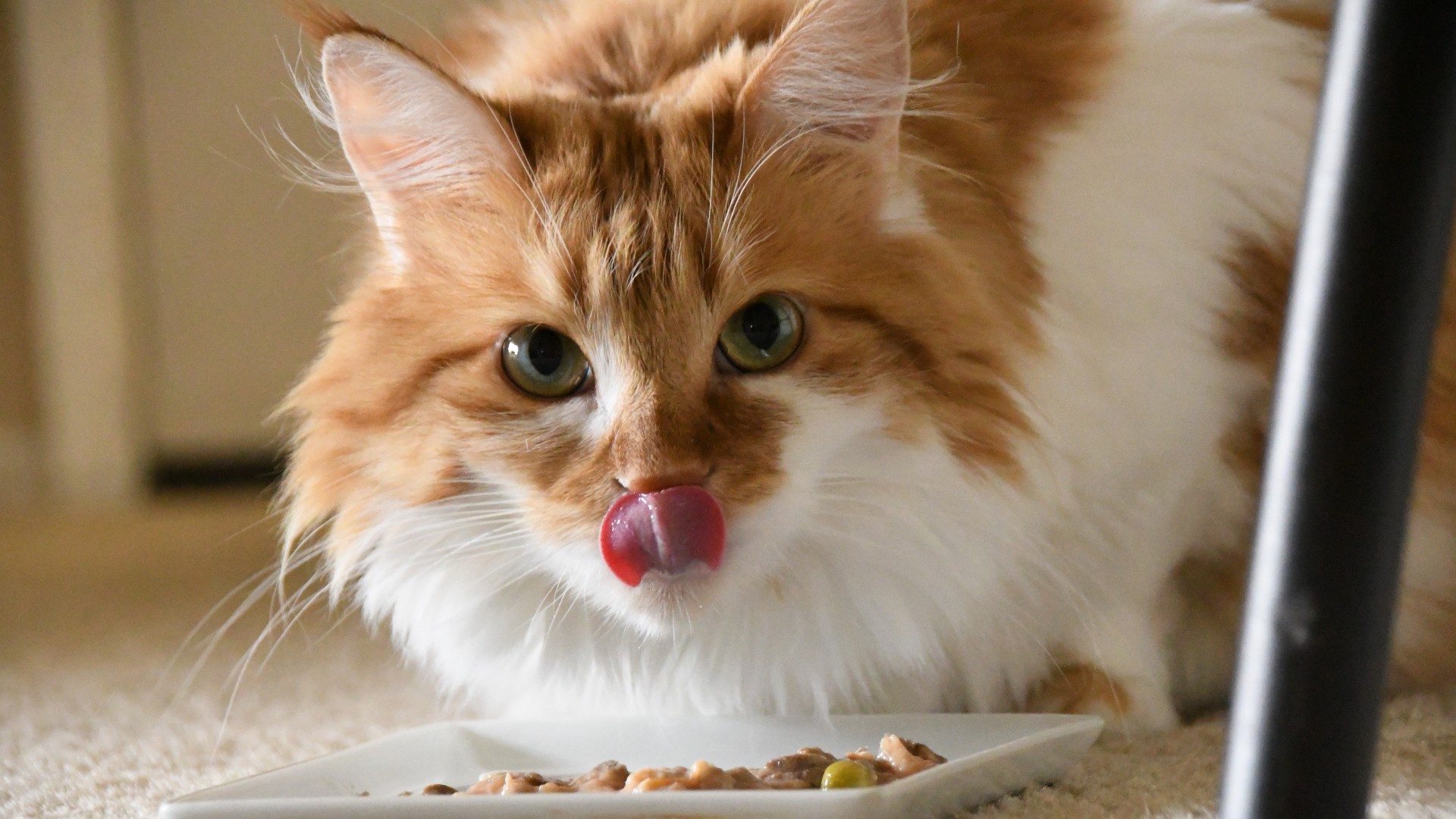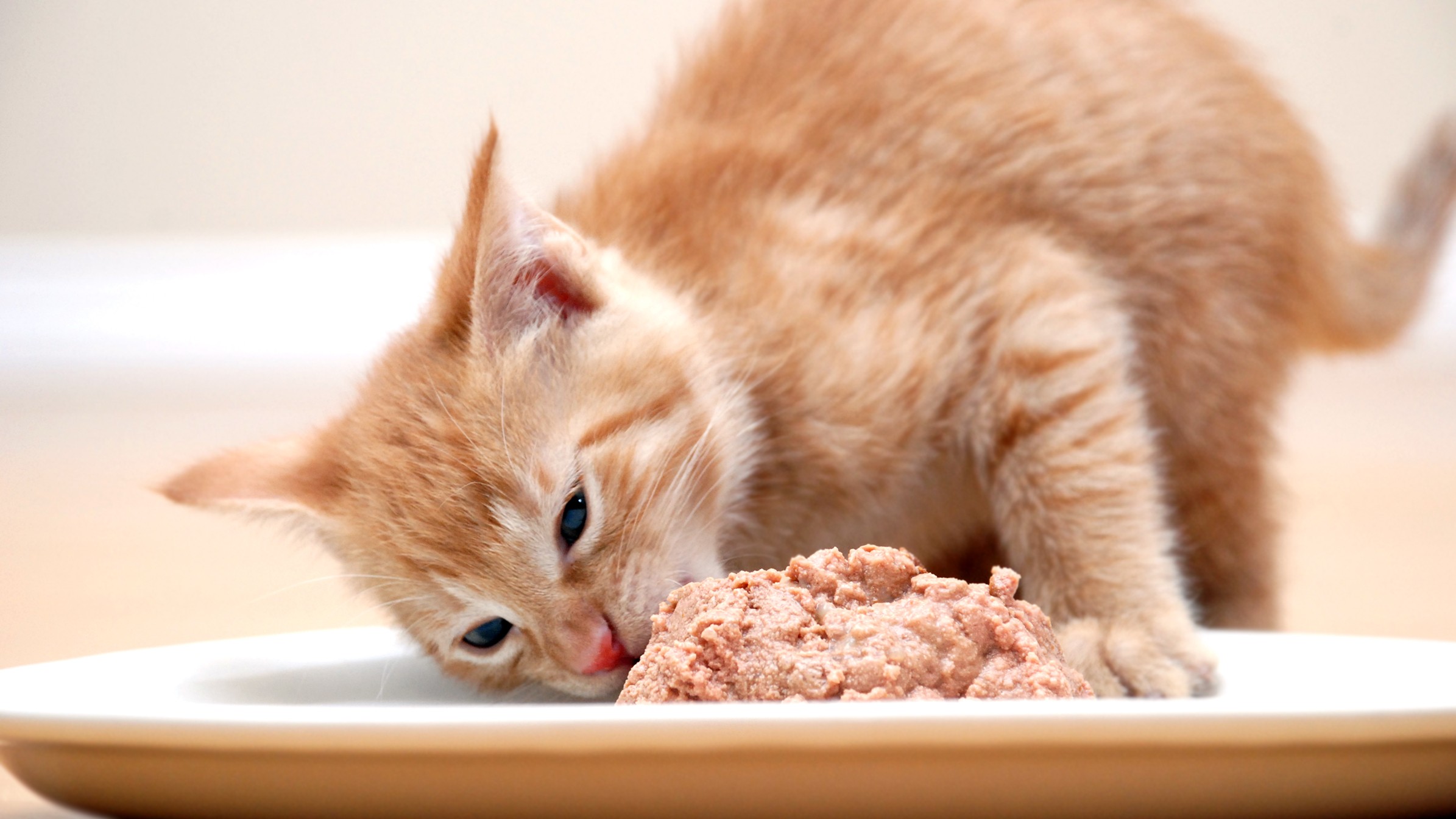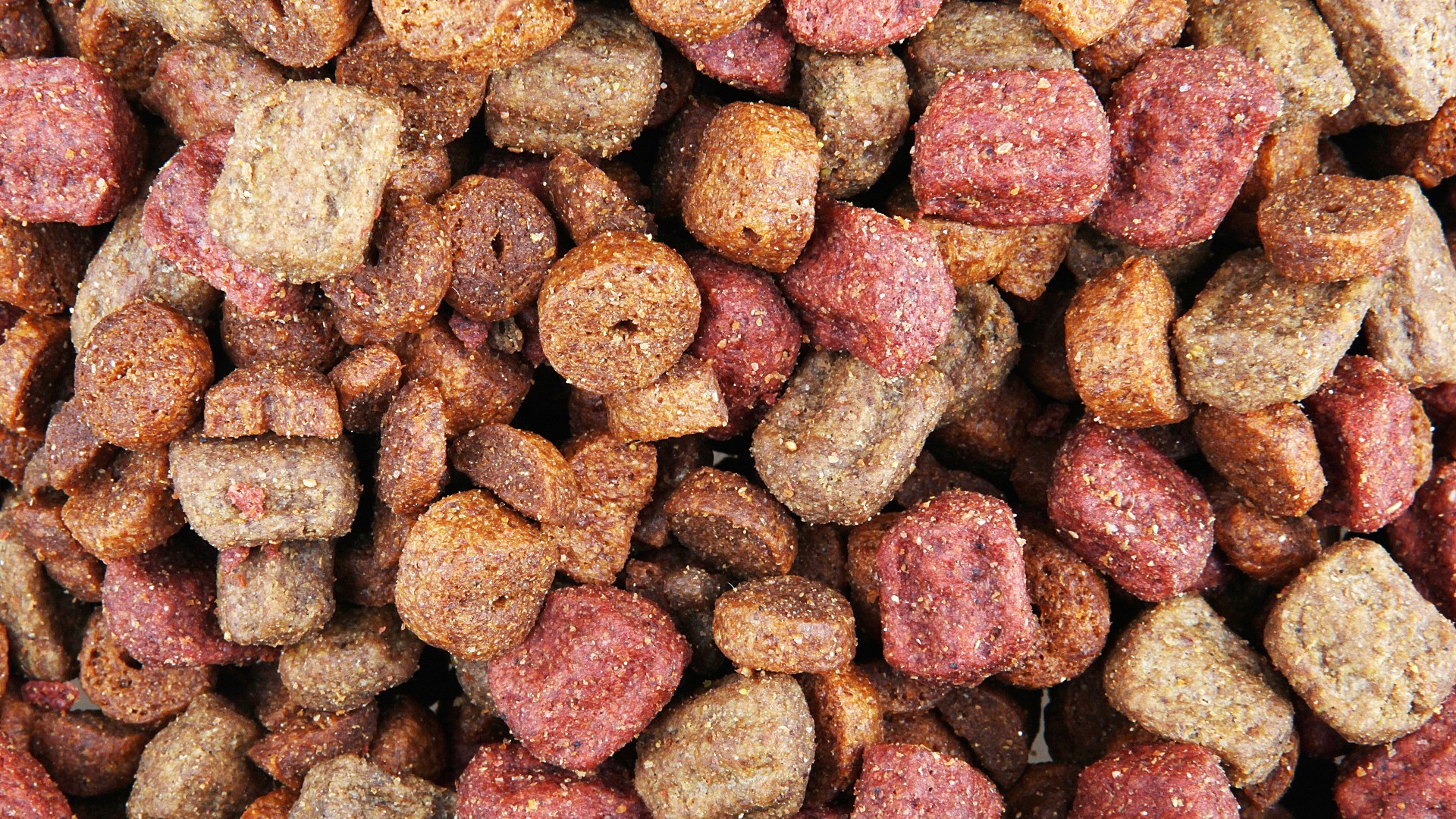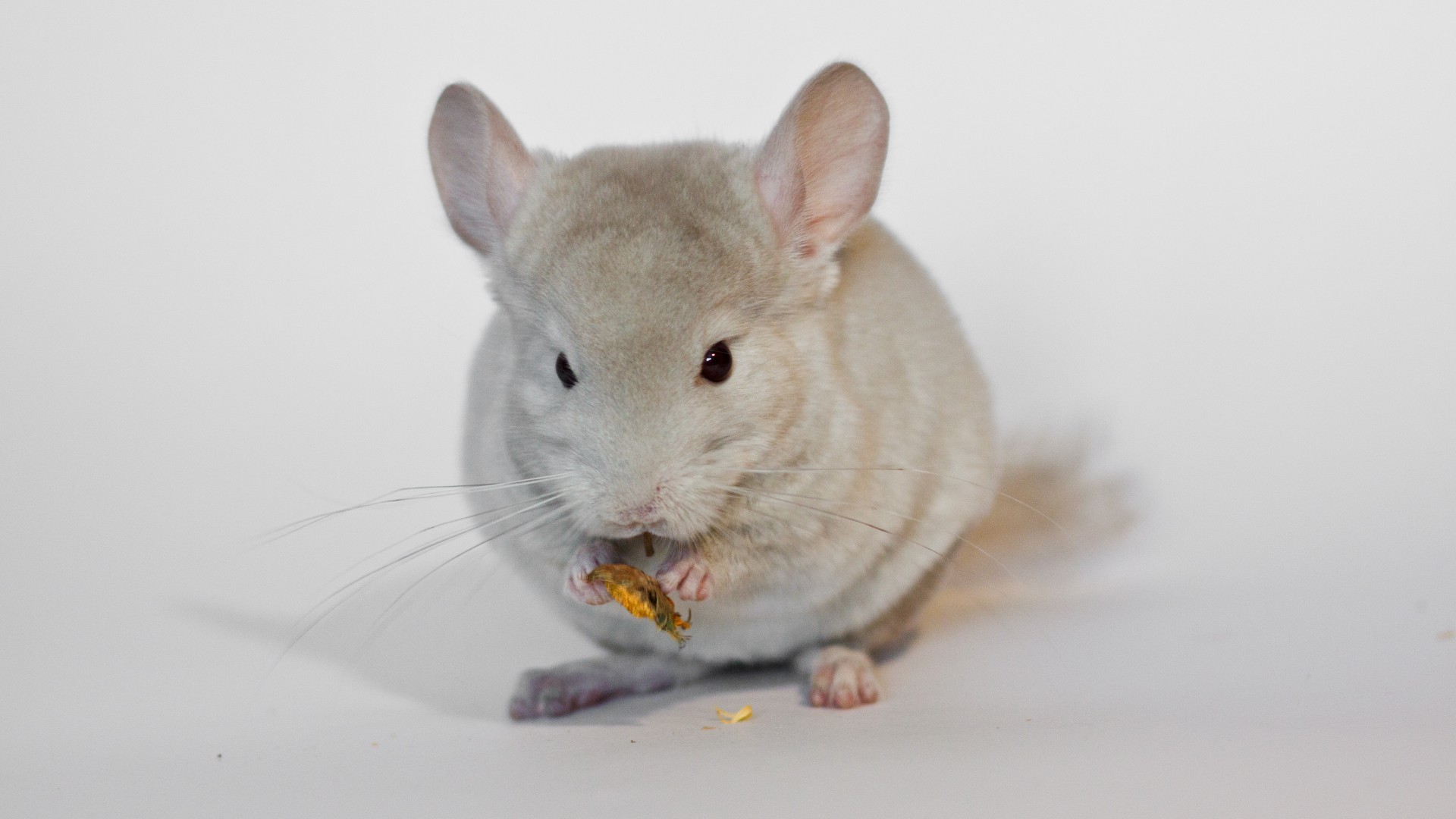Can a cat be vegan? A vet's view...
Cats must have meat in their diets to be healthy, but there are alternatives to a vegan diet for cats.

Food is love and pet owners often like to show their love for their pets by feeding them the same foods they eat themselves. Not surprisingly, this means that trends in pet nutrition frequently follow the latest trends in human nutrition.
Grain-free, all-natural, and ancestral diets for pets all originated from similar dietary fads for humans. Now, with more and more people switching to plant-based and vegan diets, many pet owners are searching for similar options for their pets. But can a cat be vegan? The answer is no – and there are several reasons why a vegan or plant-based diet is not safe for your cat.
Cats are obligate carnivores
Unlike dogs and humans, who are omnivores, cats are obligate carnivores. This means that cats must consume meat in order to fulfill their nutritional requirements. Cats have much higher nutritional protein requirements than other mammals. While some protein can be obtained from eating plants, it is difficult for cats to ingest enough protein from a plant-based diet to meet their natural nutritional requirements.
As obligate carnivores, cats have evolved to use protein and fat as their primary energy sources. When these nutrients are not adequately provided by the cat’s diet, the body must break down its own muscle and fat stores to provide these essential nutrients – to the detriment of the cat’s health.

In addition to protein, all animals need to consume a diverse profile of amino acids. Amino acids – known as the “building blocks” of proteins – have a wide range of functions throughout the body. Some amino acids can be synthesized by the cat’s body, but others cannot be synthesized or stored and therefore must be provided by the cat’s diet. In cats, the amino acids taurine, arginine, methionine, cysteine, and tyrosine must be obtained by eating meat. Cats also must obtain other essential nutrients such as Vitamin D, niacin, and Vitamin A from their diets.
While amino acids and vitamins can be supplemented, synthetic nutrients often have less bioavailability – meaning that the cat’s body cannot digest and utilize the synthetic nutrients as readily as those that occur naturally. And even with synthetic supplementation, many vegan diets still do not meet a cat’s nutritional needs. In fact, one study examining commercially-made vegan diets for pets found that they were frequently deficient in essential amino acids, which can lead to serious health problems for cats eating these diets long term.
The dangers of a vegan diet for cats
Although some pet owners insist that their cats do well on a vegan diet, it’s important to remember that nutritional imbalances may take years to manifest clinically. By the time the cat exhibits symptoms, the disease may be irreversible. Deficiencies in essential nutrients due to a vegan diet may cause severe or even fatal health problems, such as:
Get the best advice, tips and top tech for your beloved Pets
- Dilated cardiomyopathy (DCM) or other heart diseases
- Blindness
- Poor growth
- Weight loss
- Loss of muscle mass
- Neurologic abnormalities
- Urinary problems
- Renal Insufficiency
- Abortion (miscarriage) and reproductive problems
- Poor hair coat
- Skin problems
Some of these concerns may be reversed if caught early and if the cat is transitioned to a biologically appropriate diet. However, in many cases, by the time symptoms arise the damage is permanent. Therefore, it is critically important that pet owners do not assume that a cat’s diet is adequate simply because the cat appears healthy. Vegan diets are not nutritionally complete and balanced for cats and should never be fed long term.
Alternatives to a vegan diet for cats

All cats must eat a diet containing meat in order to be healthy. However, there are often ways to accommodate both the pet owner’s preferences and the cat’s nutritional needs to find a cat diet that works best for everyone.
Many pet owners seek out vegetarian and vegan diets for their pets because they are concerned about the safety of traditional pet foods. The good news is that many commercially-made, meat-inclusive foods made by the best cat food brands are safe and healthy for your cat. Choosing a cat food that is manufactured by a reputable pet food company and backed by scientific research is the best way to ensure that your cat’s diet is safe.
To help you do this, the World Small Animal Veterinary Association (WSAVA) has created a series of questions to ask your pet food manufacturer. If the manufacturer cannot or will not answer these basic questions about the cat food they are selling, it’s a sign that the company is not reputable and should be avoided. You can also ensure you’re choosing the best diet for your cat by learning how to read a pet food label, reading the diet recommendations from board-certified veterinary nutritionists, and asking your veterinarian for guidance.
Some pet owners prefer to avoid meat because they are concerned about the health and welfare of animals raised for slaughter. Unfortunately, our human ideologies do not change our cat’s nutritional needs. Cats still need to eat a diet containing meat, but welfare-conscious pet owners may feel more comfortable having their cat eat a homemade diet prepared with humanely raised meat from a local farm.
In general, homemade diets are not recommended for pets, but a homemade meat-inclusive diet is far healthier for your cat than any vegan diet. For pet owners that choose to go this route, it is essential to consult with a board-certified veterinary nutritionist to ensure that the homemade diet is complete and balanced and provides all the nutrients your cat needs.
Choose a vegan pet to eat a vegan diet

If you absolutely cannot stomach the idea of having a meat-eater in your home, then a cat is not an appropriate pet for you – and that’s okay! There are plenty of animals that are naturally herbivores and also make great pets. Rabbits, chinchillas, guinea pigs, hamsters, gerbils, and many species of birds all naturally eat a plant-based diet and will thrive in a household with a vegan lifestyle.
If you are comfortable with a pet that eats insects, reptiles and hedgehogs can also make great pets. These exotic species each have their own unique care requirements, so be sure to do your research first to find a pet that will fit in well with your household.
Vegan diets for cats – A deadly mistake!
Cats are obligate carnivores and, unfortunately, this cannot be changed to accommodate our human morals. While a cat can survive on a vegan diet in the short term, a vegan diet does not provide all the nutrients a cat needs. Over time, deficiencies in protein, amino acids, and vitamins can lead to serious or even fatal health problems for your cat.
If your cat is currently eating a vegan diet, ask your veterinarian how to choose and transition to a more biologically appropriate diet. Your veterinarian can also help you develop a diet plan for your cat that is safe, nutritionally balanced, and most closely matches your moral standards – a win for everyone!
Dr. Elizabeth Racine is a small animal general practice vet covering all things pet health and wellness. Her special interests include veterinary behavior, nutrition, and internal medicine.
As a freelance writer, Dr. Racine has written content for major companies in the industry such as the American Kennel Club, Merck Animal Health, Bayer PetBasics, Elanco, and CareCredit. In her free time, Dr. Racine enjoys playing trampoline dodgeball, hiking with her beagle Dasher, and spending time with her three mischievous cats.

